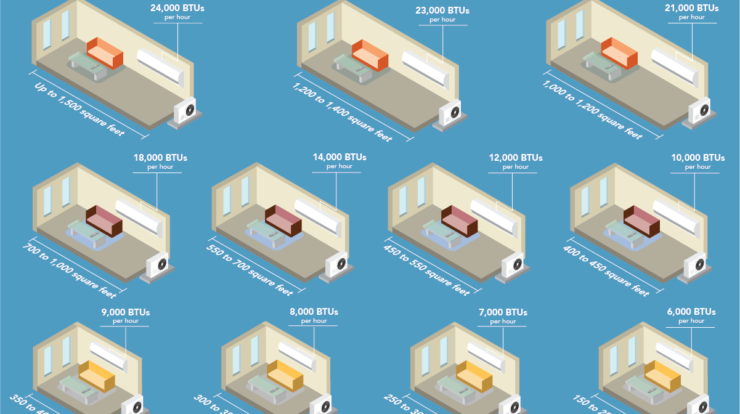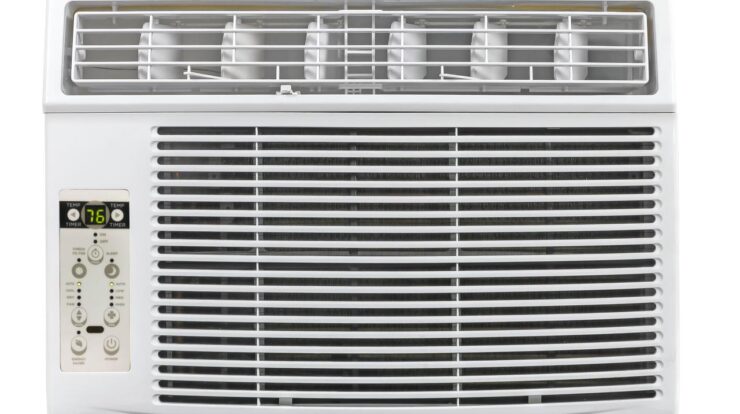My brake pedal is stiff and car won’t start nissan – When your Nissan’s brake pedal becomes stiff and the car refuses to start, it’s a frustrating and potentially dangerous situation. This comprehensive guide delves into the underlying causes of these issues, providing a step-by-step approach to diagnosing and resolving them, ensuring your Nissan is back on the road safely and efficiently.
Brake Pedal Stiffness
A stiff brake pedal can be a symptom of various issues within your vehicle’s braking system. Understanding the potential causes and how to diagnose them is crucial for ensuring your safety and vehicle’s performance.
The stiffness of the brake pedal can vary depending on the underlying cause. It can range from feeling slightly firmer than usual to being almost impossible to depress.
Master Cylinder Issues, My brake pedal is stiff and car won’t start nissan
The master cylinder is the heart of the braking system, responsible for converting the force applied to the brake pedal into hydraulic pressure. A faulty master cylinder can lead to a stiff brake pedal due to:
- Internal leaks or damage, causing a loss of hydraulic pressure.
- Clogged or restricted fluid passages, hindering fluid flow and increasing pedal resistance.
- Air trapped in the system, creating a spongy or stiff pedal feel.
Brake Line Issues
Brake lines are responsible for carrying hydraulic fluid from the master cylinder to the calipers or wheel cylinders. Issues with the brake lines can also contribute to a stiff brake pedal:
- Leaks or damage to the brake lines, allowing fluid to escape and reducing hydraulic pressure.
- Clogged or corroded brake lines, restricting fluid flow and increasing pedal effort.
- Air trapped in the brake lines, similar to the master cylinder issue, causing a spongy or stiff pedal feel.
Caliper Issues
Calipers are the components that house the brake pads and apply pressure to the brake rotors. Problems with the calipers can also lead to a stiff brake pedal:
- Seized or sticky calipers, preventing the brake pads from fully releasing and causing constant pressure on the rotors.
- Damaged or worn brake pads, creating excessive friction and increasing pedal resistance.
- Air trapped in the caliper, causing a spongy or stiff pedal feel.
Diagnosing the Root Cause
Diagnosing the root cause of a stiff brake pedal requires a systematic approach:
- Check for fluid leaks:Inspect the master cylinder, brake lines, and calipers for any visible leaks or signs of fluid seepage.
- Examine the brake pedal resistance:Depress the brake pedal and feel for any unusual resistance or stiffness. Note if the pedal feels spongy or hard.
- Check warning lights:Pay attention to any illuminated warning lights on the dashboard, such as the ABS or brake system light, which may indicate a related issue.
- Inspect the brake pads:Check the thickness and condition of the brake pads to ensure they are not excessively worn or damaged.
If you are unable to identify the cause of the stiff brake pedal yourself, it is recommended to consult a qualified mechanic for further diagnosis and repair.
Car Not Starting

When a car fails to start, it can be frustrating and inconvenient. Understanding the common reasons why this occurs can help you troubleshoot the issue and get your vehicle back on the road quickly.Common causes of a car not starting include:
Battery issues
A weak or dead battery can prevent the starter from engaging or the engine from turning over.
Starter problems
A faulty starter motor or solenoid can prevent the engine from cranking.
Fuel delivery malfunctions
If the fuel pump, fuel lines, or fuel injectors are malfunctioning, the engine will not receive the fuel it needs to start.
Troubleshooting the Starting System
To troubleshoot the starting system, follow these steps:
Check the battery terminals
Ensure that the battery terminals are clean and tight. Loose or corroded terminals can prevent the battery from providing power to the starter.
Test the starter
Use a multimeter to test the starter solenoid and motor. A faulty solenoid will not engage the starter, while a faulty motor will not turn the engine over.
For a reliable and durable trailer setup, consider upgrading to a 3500 lb trailer axle with brakes . This sturdy axle provides ample support for your trailer and ensures smooth and controlled braking, enhancing safety on the road. For added durability and corrosion resistance, opt for 3/16 stainless steel brake line . This high-quality line withstands harsh conditions, ensuring optimal brake performance for years to come.
Examine the fuel lines
Inspect the fuel lines for any leaks or blockages. If the fuel lines are damaged or clogged, the engine will not receive the fuel it needs to start.
Nissan-Specific Considerations
Nissan vehicles may encounter specific issues that contribute to brake pedal stiffness and starting problems. Understanding these potential issues and their solutions can help Nissan owners diagnose and resolve these problems effectively.
If you’re looking for a durable and reliable 3/16 stainless steel brake line , you can count on Boulder Wire to provide you with the highest quality products. Our brake lines are made from premium materials and are designed to withstand the toughest conditions.
Whether you’re working on a car, truck, or trailer, we have the right brake line for your needs.
Common Failure Points in Nissan Brake Systems
Several common failure points in Nissan brake systems can cause pedal stiffness:
- Master Cylinder Failure:A faulty master cylinder can prevent brake fluid from reaching the calipers, resulting in a stiff brake pedal and reduced braking power.
- Brake Booster Malfunction:A malfunctioning brake booster, which assists in brake pedal application, can lead to increased pedal stiffness and reduced braking effectiveness.
- ABS Module Issues:Problems with the Anti-lock Braking System (ABS) module can interfere with brake fluid distribution, causing pedal stiffness and ABS malfunction.
Common Failure Points in Nissan Starting Systems
Similarly, Nissan vehicles may experience starting problems due to specific failure points:
- Starter Motor Issues:A faulty starter motor can prevent the engine from cranking, leading to a no-start condition.
- Battery Problems:A weak or dead battery can provide insufficient power to engage the starter motor, resulting in starting difficulties.
- Ignition System Malfunctions:Faults in the ignition system, such as a defective ignition switch or ignition coil, can disrupt spark delivery to the engine, causing starting problems.
Diagnosing and Repairing Nissan Brake and Starting Issues
To diagnose and repair Nissan brake pedal stiffness and starting problems, follow these steps:
- Check Brake Fluid Level and Condition:Ensure the brake fluid reservoir is full and the fluid is clean and free of debris.
- Inspect Brake Components:Examine the brake pads, rotors, and calipers for wear or damage. Replace any worn or faulty components.
- Test Brake Booster:Start the engine and apply the brakes. If the pedal sinks to the floor with little resistance, the brake booster may be malfunctioning.
- Diagnose Starter Motor:Attempt to start the engine. If there is a clicking sound but no cranking, the starter motor may be faulty.
- Check Battery Voltage:Use a voltmeter to measure the battery voltage. A reading below 12 volts may indicate a weak or dead battery.
- Disconnect the negative battery terminal before performing any work on the brake or starting systems.
- Use insulated tools to avoid electrical shocks.
- Wear safety glasses and gloves for protection.
- Brake fluid is corrosive. Avoid contact with skin and eyes.
- Use gloves and eye protection when handling brake fluid.
- Dispose of used brake fluid properly at an authorized facility.
- Use the correct tools for the job and ensure they are in good working condition.
- Wear appropriate safety gear, such as gloves and safety glasses.
- Follow the manufacturer’s instructions for safe tool operation.
Troubleshooting and Repair Options: My Brake Pedal Is Stiff And Car Won’t Start Nissan
To troubleshoot brake pedal stiffness and car starting issues, you can follow a series of diagnostic steps. Start with simple checks and gradually move to more complex ones. If the problem persists or you lack the necessary tools or expertise, don’t hesitate to seek professional assistance from a qualified mechanic.
Potential Causes, Diagnostics, and Repair Solutions
Refer to the table below for a comprehensive overview of potential causes, diagnostic procedures, and repair solutions for brake pedal stiffness and car starting problems in Nissan vehicles:
| Potential Cause | Diagnostic Procedure | Repair Solution |
|---|---|---|
| Vacuum leak | Check vacuum hoses for cracks or disconnections. Inspect vacuum pump for proper operation. | Replace damaged vacuum hoses or repair leaks. Replace faulty vacuum pump. |
| Master cylinder failure | Inspect master cylinder for leaks or low fluid level. | Replace master cylinder or rebuild if possible. |
| Brake booster failure | Check brake booster for proper operation. Listen for hissing sounds when applying the brake pedal. | Replace brake booster. |
| Faulty ignition switch | Test ignition switch with a multimeter. Check for continuity and proper voltage. | Replace ignition switch. |
| Battery issues | Check battery terminals for corrosion or loose connections. Measure battery voltage and charge if necessary. | Clean or tighten battery terminals. Replace battery if faulty. |
| Starter problems | Inspect starter motor and solenoid for proper operation. Check starter connections and wiring. | Repair or replace starter motor or solenoid. |
Safety Precautions

Prioritizing safety is crucial when working with brake and starting systems due to the potential risks involved. Taking proper precautions helps prevent accidents, injuries, and damage to your vehicle.
To ensure a safe working environment, adhere to these guidelines:
Disconnecting Batteries
Handling Brake Fluid
Using Tools Appropriately
Final Conclusion
Understanding the potential causes of a stiff brake pedal and a car that won’t start is crucial for Nissan owners. By following the troubleshooting steps Artikeld in this guide, you can identify and address these issues effectively, ensuring a smooth and safe driving experience.
Common Queries
What are the common causes of a stiff brake pedal in a Nissan?
A stiff brake pedal in a Nissan can be caused by various factors, including a faulty master cylinder, worn brake pads, or a leak in the brake lines.
Why won’t my Nissan start, even with a new battery?
A new battery does not guarantee a car will start. Other potential causes include a faulty starter, alternator, or fuel pump.
Is it safe to drive with a stiff brake pedal?
No, it is not safe to drive with a stiff brake pedal. A stiff brake pedal can significantly reduce your ability to stop the car, increasing the risk of an accident.






